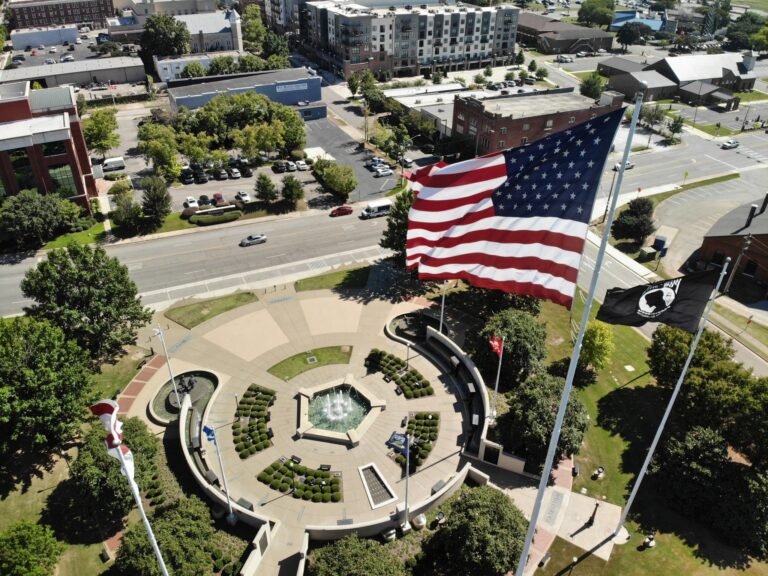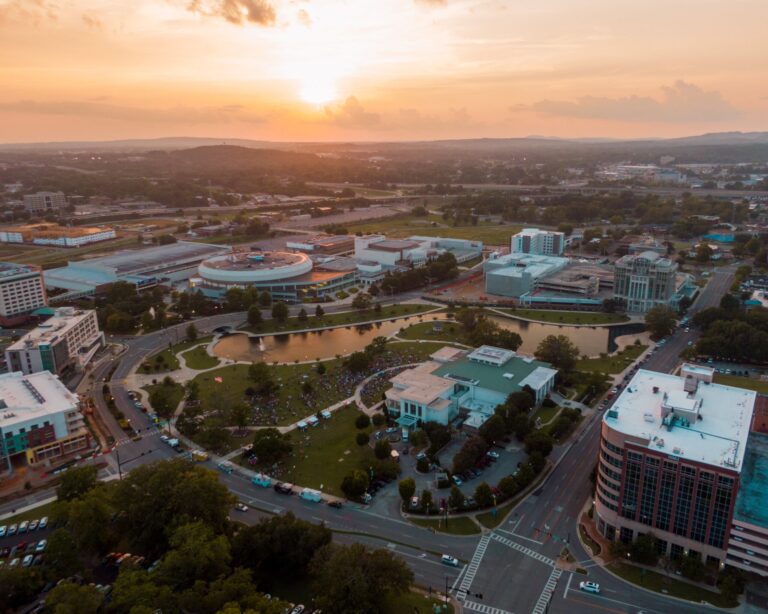That Girl Was on Fire
Marker Dedication for Alice Boarman Baldridge: Blazing trails for women
Sunday, October 30 at 2pm
703 Adams Street Huntsville, AL 35801
One of Huntsville’s most picturesque streets will be the setting for a historic marker dedication recognizing Alice Boarman Baldridge, a Huntsville woman who made history, on Sunday, October 30 at 2pm. The marker dedication is a project of the Historic Huntsville Foundation and the City of Huntsville. Although Alice’s quaint Victorian cottage in the Twickenham Historic District is no longer standing, Alice’s legacy lives on through the women who followed in her footsteps.
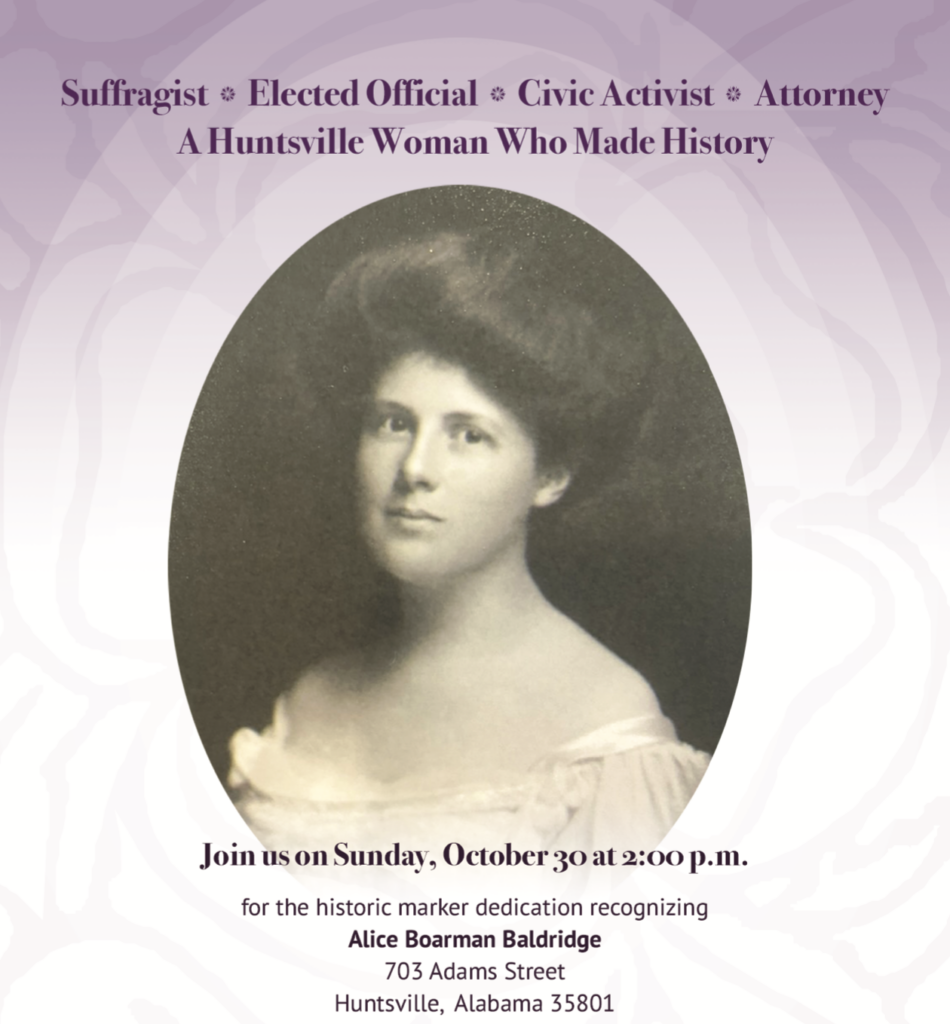
As a leader in Huntsville’s suffrage movement, Alice was the first Madison County woman elected to public office. Voters elected her to the Madison County Board of Education in 1916–four years before women had the right to vote. Two years later, at the age of 44, Alice became Madison County’s first female attorney.
With these accomplishments under her belt, she picked up steam for her second act. She moved to New York City in 1923 and practiced law at a Wall Street firm until 1957. Among her many honors, Alice was listed as “Outstanding Woman Lawyer” in the 1937 Woman’s Almanac, Facts For, By and About Women. Alice worked until the age of 84, returning to her beloved residence on Adams Street. Back with family and old friends, she passed away in 1961.
As a civic volunteer, candidate for office, and elected official, Alice changed the political and economic landscape of Huntsville. A native of New Orleans and a graduate of Sophie Newcomb College, Alice took up the mission of a public library shortly after her arrival in Huntsville. With her help, Huntsville received funding for the city’s Carnegie Library which stood on Madison Street until 1966. Her election to the Madison County School Board spurred more opportunities for women. So impressed by the public’s embrace of Alice, the Huntsville City Council appointed the first woman, Alberta Taylor Boswell, to the Huntsville Board of Education in 1918. By 1920, two women served on the city school board.
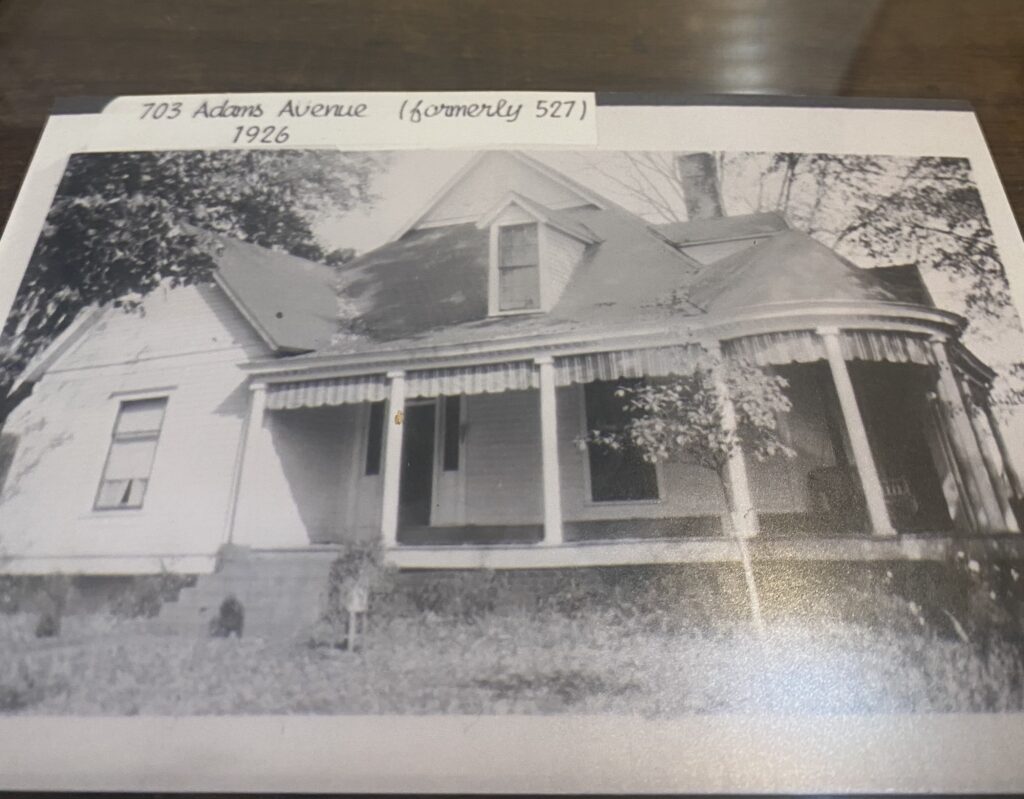
When automobiles were a new invention and highways were in their infancy, a rousing speech delivered by Alice decided the route for the Jackson Highway, a road system that connected Huntsville to Chicago, Illinois and Cleveland, Ohio–and all the other towns along the way. To convince road organizers to choose a route that passed through Huntsville, city leaders hosted a dinner at the Twickenham Hotel where prominent citizens delivered persuasive speeches. At stake was the economic development generated by travelers and tourists, who would spend money at Huntsville diners, hotels, and gas stations. Alice’s speech is credited with delivering the win. Today, Huntsvillians know the Jackson Highway as Highway 231 and Highway 431.
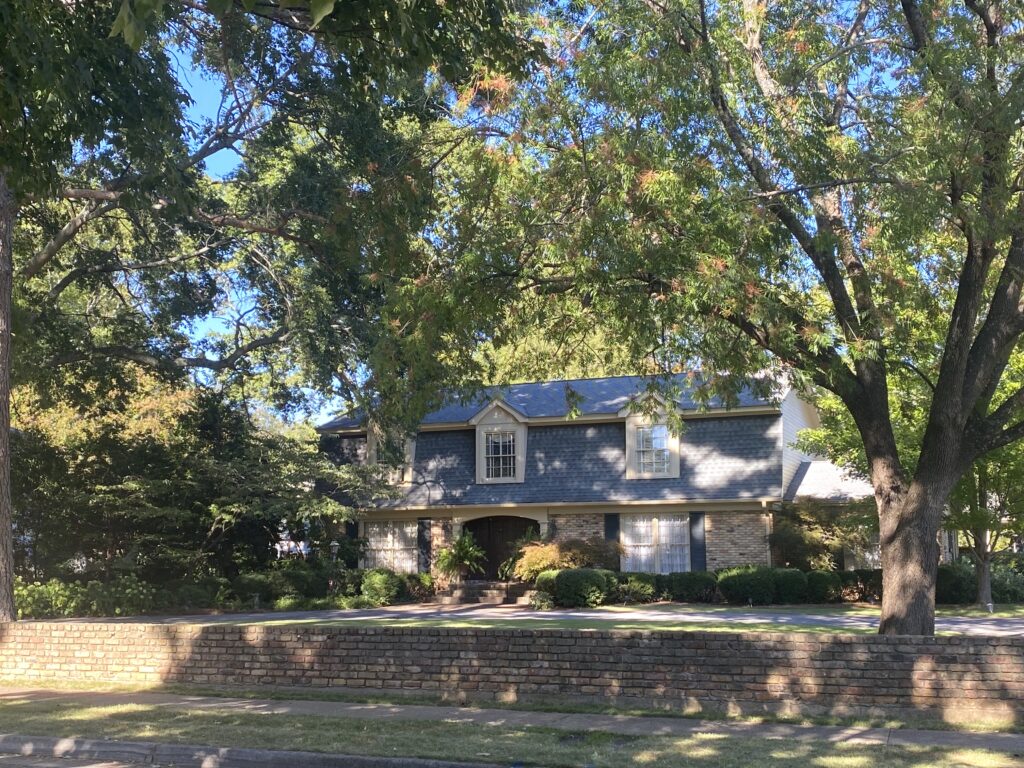
As an elected member of the Madison County Board of Education, Alice advocated for improved education for Black students. Around 1912, Rev. Junius Blunt founded the Alabama Orphans’ Home School in western Madison County. His school was Alabama’s first orphanage for Black children. With other Huntsville leaders, Alice served on the school’s board of directors, which included both Black and white directors and helped the school receive a charter of incorporation. At a 1917 fundraiser for the school, Alice spoke on the importance of Black education.
For these and so many more reasons, Alice deserves a great celebration on her big day. Thanks to the City of Huntsville’s Parks and Recreation Department, Adams Street will be closed from Locust Avenue to Newman Avenue, creating a scenic, family-friendly venue. The nonprofit Historic Huntsville Foundation will give away their popular Color Me, Huntsville coloring books to children and debut their “Huntsville Women Make History” buttons and stickers. Speakers include Alabama Rep. Laura Hall and Huntsville City Council member Jennie Robinson. Special guests include Madison County Commissioner Violet Edwards, Huntsville Municipal Judge Sybil Cleveland-Pennywell, and former astronaut Jan Davis.
On her election to the school board, Alice stated: “I confess I did not expect to [win]. The idea of a woman holding elective (sic) office was so new that I feared the prejudice against it would be insurmountable, but I felt I should serve a good purpose if I only made it easier for the next woman.”
Alice, we thank you from the bottom of our hearts.

Donna Castellano is grateful to Dana and Tony Craig for sharing Alice’s photographs and private papers and the Alabama Humanities Alliance for a grant underwriting her research.

Guest blogger for We Are Huntsville. Are you interested in writing a post for our site? Email katelyn@wearehuntsville.com.

